Legal Salon of Investment in the “Belt and Road”
The Legal Salon of Investment in the “Belt and Road”, co-hosted by the Shenzhen Outbound Alliance (SOA), Benchmark Chambers International (BCI) and Deheng (Shenzhen) Law Offices, organized by Roadlink GLB and supportedby Statistical Society for Foreign Economic Relations and Trade of Shenzhen, Point-line SpaceProfessional Service Exchange Center, Corporate Law Works Alliance and the General Branch ofZhigong Party in Bao’an District, Shenzhen City, was held successfully in Shenzhen Great ChinaInternational Financial Center on April 2, 2018. Sun Tianlu, Executive Chairman of SOA, attended the Salon and made a speech.

Sun Tianlu, Executive Chairman of SOA, is making a speech and introducing the development of SOA
Nguyen Phuoc Bao Tri from JLPW WINH AN LEGAL in Vietnam introduced that Chinese companies in the manufacturing industry and other industries such as clothing, textile, footwear, food processing,beverages, tobacco, wine and beer could benefit from the free trade greements, as well as the tax benefits in Vietnam and the minimum requirements for the establishment of manufacturing companies in Vietnam.
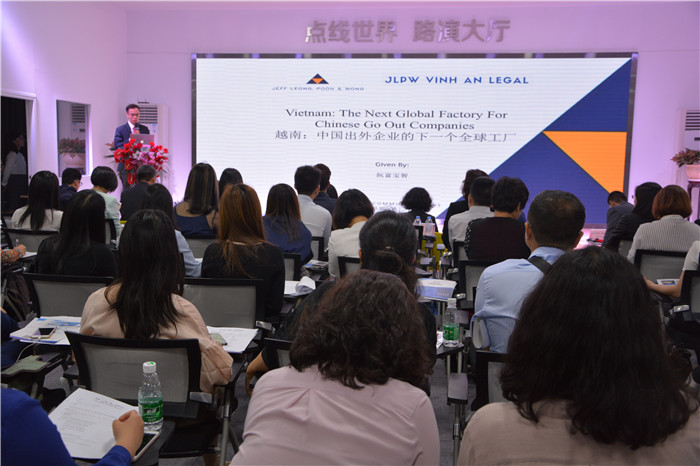
Nguyen Phuoc Bao Tri from JLPW WINH AN LEGAL in Vietnam is introducing the investment situation of Vietnam as the next global factory for China's outbound strategy.
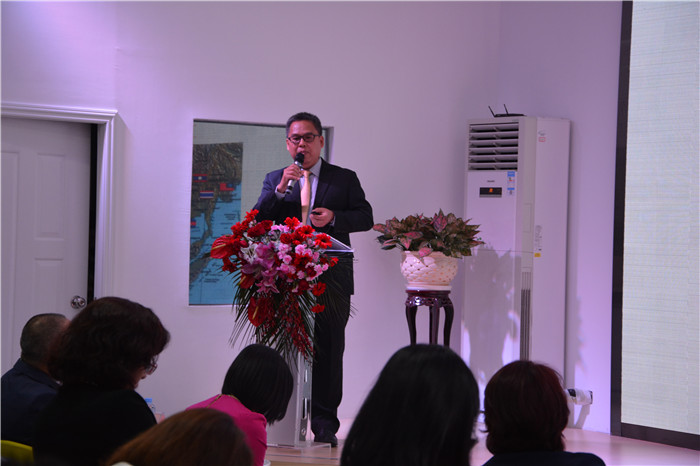
Leong Pak Lim (Jeff), the founding partner of Jeff Leong, Poon & Wong (JLPW) in Malaysia, is introducing all the aspects of Malaysia as the main hub of China’s investment in ASEAN.
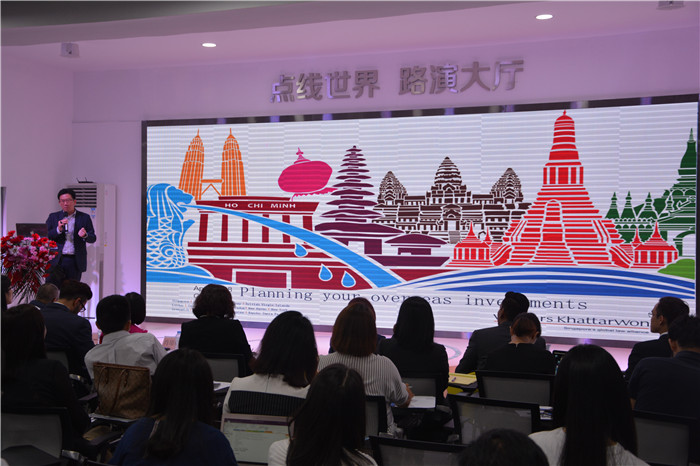
Winston Seow, a lawyer from Withers KhattarWong in Singapore is introducing China's overseas investment plan.
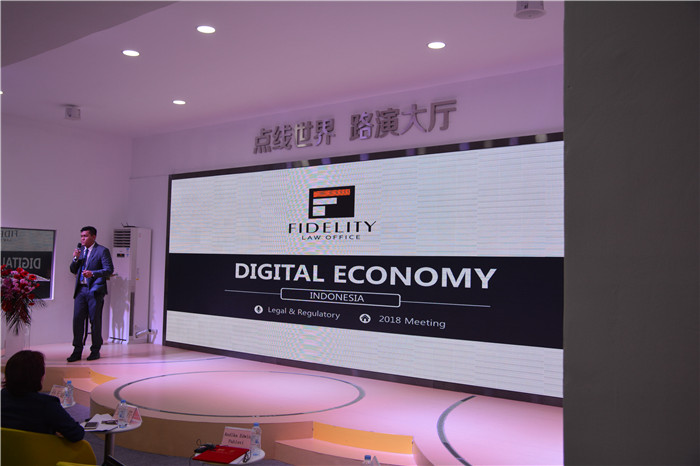
Andika Edwin Pahlev from Fidelity Law Office in Indonesia is introducing China’s digital economy investment in Indonesia: the problems on laws and supervision
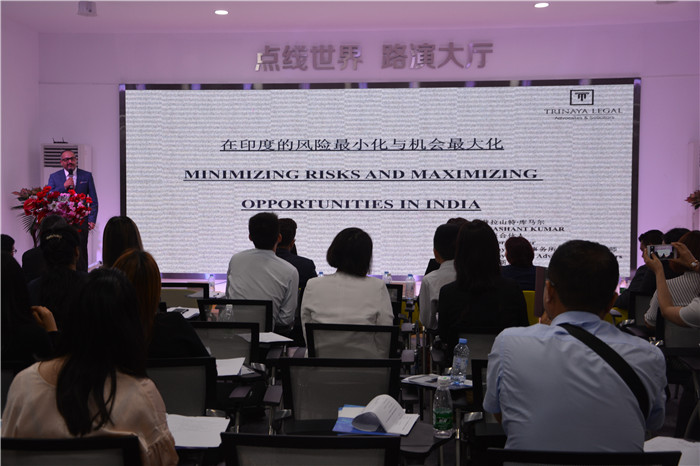
Prashant Kumar from Trinaya Legal in India is introducing how to minimize the risk and maximize the opportunity of the investment in India.
At the beginning of the Salon,,the Host Representative Xiao Jingyi, the Executive Director of BCI, made an opening speech to welcome the experts from Vietnam, Malaysia, Singapore, Indonesia and India to explain the key law points and problems on the investment in these countries.
Finally, senior lawyers from five countries shared their ideas related to the relevant policies and information.
Nguyen Phuoc Bao Tri from JLPW WINH AN LEGAL in Vietnam introduced that Chinese companies in the manufacturing industry and other industries such as clothing, textile, footwear, food processing, beverages, tobacco, wine and beer could benefit from the free trade agreements, as well as the tax benefits in Vietnam and the minimum requirements for the establishment of manufacturing companies in Vietnam.
Leong Pak Lim (Jeff), the founding partner of Jeff Leong, Poon & Wong (JLPW) in Malaysia directly demonstrated the periodical change diagram in the global resource demand by 2020, in which the demand growth may depend on India and Southeast Asia or ASEAN. If the economy of these two economic entities rises rapidly, the demand for mineral resources would increase greatly. At present, the fields in Malaysia such as education, training, information and communication technology, health care, logistics and tourism, are being promoted externally. He also introduced a successful case that Alibaba built a digital free trade zone in Malaysia, and shared the advantages of establishing factories in Malaysia.
Winston Seow, a lawyer from Withers KhattarWong in Singapore introduced the key points of overseas investment, including the investment treaties, labor force, intellectual property and overseas tax structure planning.
Andika Edwin Pahlevi from Fidelity Law Office in Indonesia focused on Indonesia's attraction to the investment in digital economy or digitalized venture capital. Indonesia‘s market is huge and the development prospect is promising.
Prashant Kumar from Trinaya Legal in India introduced that the government of India would hope to build 500 smart cities to generate a lot of market opportunities. Chinese enterprises could invest in those with large potential.
This Salon was crowned with a complete success, and all the participants said that they gained much from this Salon and hoped that SOA could hold more similar activities in the future.